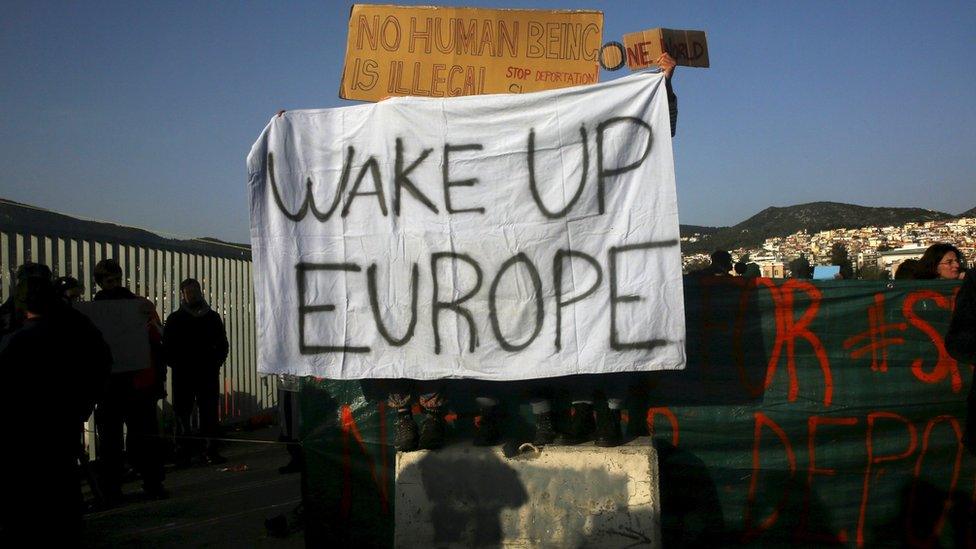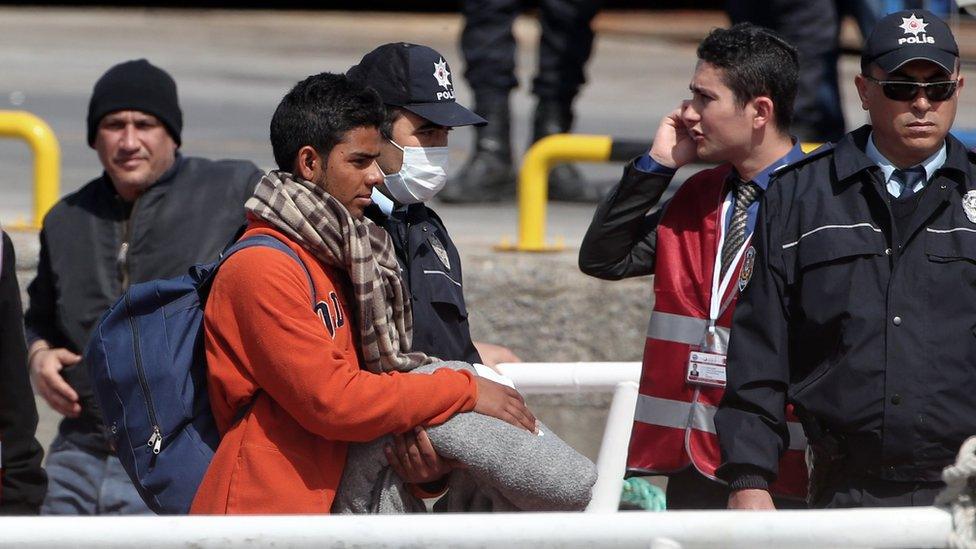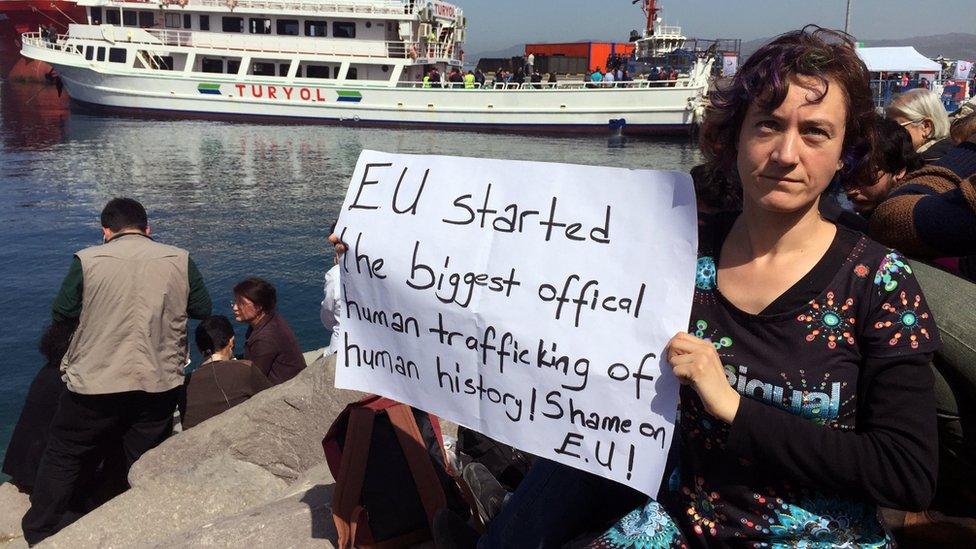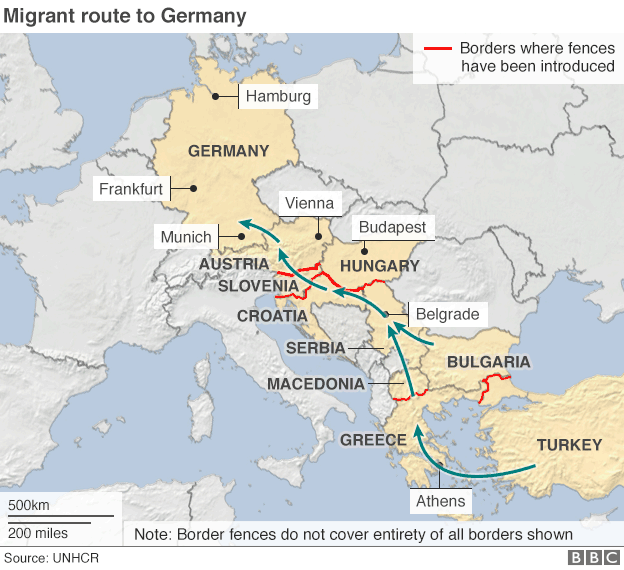Migrant crisis: Short journey back from Lesbos to Turkey
- Published
The BBC's Mark Lowen was in the Turkish town of Dikili as the first boats carrying migrants arrived from Greece
The first migrants deported from Greece have arrived in Turkey as part of a controversial EU plan aimed at easing mass migration to Europe.
Three boats set sail from Lesbos and Chios, two of the Greek islands most affected by irregular migration from Turkey. And while more than 200 migrants were set back on Monday, dozens more were still trying to cross the short distance to Lesbos to Greece.
BBC correspondents on Lesbos and in the Turkish port of Dikili watched the operation to send people back.

A calm start on Lesbos, by Sarah Rainsford, BBC News
The deportations began at first light. Dozens of migrants were bussed to the port, where two small Turkish ferries were moored and waiting.
Riot police were deployed to the quayside and each person being sent back had an individual police escort.
But the migrants, mostly Pakistani men, did not resist. The Greek authorities say none had requested asylum.
Mark Lowen reports from Dikili in Turkey
Those who do request it are entitled to individual hearings. The UN refugee agency says more than 2,800 people have already applied: that is almost everyone held at the detention camp here.
How those requests are processed will be the first real test of this whole process.
Other EU countries have still only sent a handful of the asylum experts - even the interpreters - they have been asked for.

The deportations started calmly amid small demonstrations
One woman I spoke to through the tall wire fence told me she was very worried.
A journalism student in Syria, Taqwa Hariri said she had risked the dangerous journey here to seek a life where she could "feel like a human, at least". Her sister made it to Belgium six months ago, she said, before the rules changed.
The EU wants its new rules to deter migrants from the risky sea crossing. It argues the arrangement with Turkey provides a safe alternative. But it is clearly about reducing numbers too. And people here fear the door to Europe is now slamming shut on them.

In Turkey questions remain - by Mark Lowen, BBC News, Dikili
After the last-minute preparations, the first arrivals here appeared to run smoothly. The first group arrived on two boats at Dikili port, then a third came in. They were met by local officials and the Turkish Red Crescent.
They were registered in a small tent before being driven away on buses. Most today were from Pakistan and, with other non-Syrians, will be taken to deportation centres where their cases will be assessed.
Turkey has now signed readmission agreements with 14 countries. Syrians refused asylum in Greece will be taken to refugee camps in southern Turkey, where in time they will take the place of those Syrians directly resettled in the EU under the so-called "one-for-one plan".

Non-Syrian migrants are expected to be sent to deportation camps in Turkey

Some demonstrators gathered in Dikili as deportees arrived
The country that is already the largest host of refugees in the world now faces added pressures with these new arrivals.
There are fears over how they will be treated. Not even Greece was willing to designate Turkey a "safe country" for migrants, and Amnesty International has accused the Turkish authorities of forcibly returning a hundred Syrians a day back to Syria, violating international law. Ankara vehemently denies it but will face renewed scrutiny of its refugee policy as thousands more are returned here in the coming days.
Across the port at Dikili, around 50 Pakistanis were being held, picked up by the Turkish coastguard this morning as they tried to travel to Lesbos.
It was a stark illustration of the problem with this deal. The EU may have closed its doors, the expulsions have begun - but the desperate are still willing to try their luck.


A note on terminology: The BBC uses the term migrant to refer to all people on the move who have yet to complete the legal process of claiming asylum. This group includes people fleeing war-torn countries such as Syria, who are likely to be granted refugee status, as well as people who are seeking jobs and better lives, who governments are likely to rule are economic migrants.